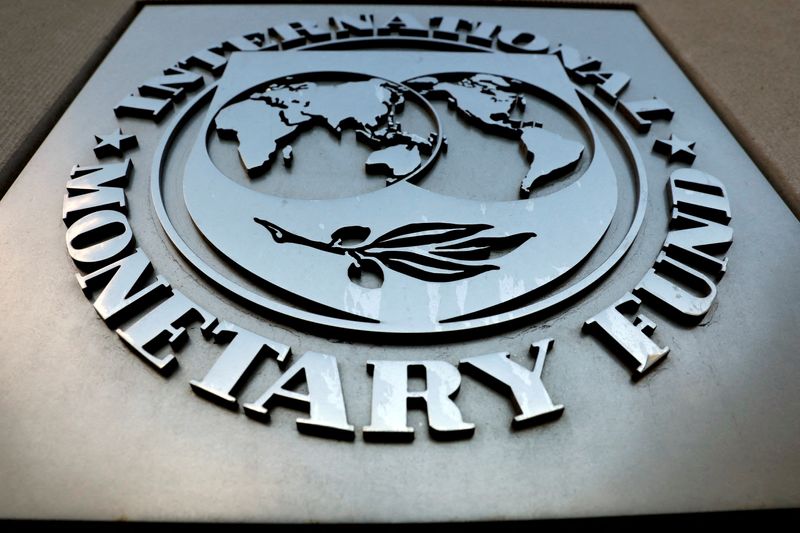By Patrick Werr and Marc Jones
CAIRO/LONDON (Reuters) - Egypt's finances remain in a precarious state despite two major currency devaluations this year and a brand new $3 billion International Monetary Fund rescue package, economists say.
With debt interest payments set to soak up over 40% of the government's revenues next year and a lack of foreign currency still hurting the economy, investors remain cautious despite a post-IMF bounce in sentiment.
Bankers in north Africa's largest economy point out that the Egyptian pound's black market rate of 26-26.5 per dollar is still 8% below the 24.53 official rate despite a 36% overall devaluation this year.
Foreign exchange traders, meanwhile, seem convinced it will be 28 to the dollar this time next year and Japanese bank Nomura has just put Egypt top of its list of countries at high risk of a currency crisis..
"The Egyptian pound will likely remain under pressure until more U.S. dollar inflows from GCC (Gulf nations) and committed foreign direct investment materialises," said Carla Slim at Standard Chartered (OTC:SCBFF) Bank.
Last month's IMF deal has provided some respite.
Egypt's soon-to-pay-out government bonds have rallied some 15% and the premiums demanded by investors to hold them rather than U.S. Treasuries have shrunk by almost a third. Bonds that won't have to be paid for another 15-20 years have also gained sharply, although at 65-70 cents in the dollar and a third below their face value, analysts stress they still indicate danger. "Egypt has got a high debt load and arguably it is more vulnerable even than Pakistan in terms of debt payments as a share of revenues," said Renaissance Capital's chief economist Charlie Robertson.
"But the difference is, it has been proactive and been quick to go to the IMF," Robertson added, noting Egypt also has strong support from rich Gulf countries.
GRAPHIC: Egypt's debt problems - https://fingfx.thomsonreuters.com/gfx/mkt/zgvobmzgmpd/Pasted%20image%201669369447834.png
Sales of Egyptian short-term treasury bills to foreigners - a key source of government finance until the Ukraine crisis - have also remained relatively stagnant at around 4-6 billion Egyptian pounds ($163-244 million), two bankers in Egypt who requested anonymity for this story estimated.
This is partly because of the government's reluctance to raise the interest rate -- or yield -- on the bills above the rate of inflation, particularly when another sharp currency devaluation is being priced in.
BOTTLENECKS
Egypt's swollen current account deficit and $33.9 billion of international debt payments due for the three years to mid-2025 leave Egypt vulnerable, ratings agency Fitch said this month when it slapped a downgrade warning on the country's credit rating.
Only default-stricken Sri Lanka and soon-to-default Ghana spend more than the 41% of government revenues Egypt is forecast to spend on interest payments on its debt next year.
GRAPHIC: Struggling to pay the bills - https://graphics.reuters.com/EMERGING-DEBT/dwpkdrlwlvm/chart.png
With very limited amounts of dollars and other foreign exchange available in Egypt, importers continue to face problems financing goods from abroad, creating bottlenecks for factories and retailers, bankers say.
Farouk Soussa, an economist at Goldman Sachs (NYSE:GS), said a backlog of corporate demand for foreign exchange and tight liquidity in the system would continue to push the pound weaker if it were allowed to trade freely.
"Fundamental valuation models suggest the pound is undervalued by as much as 10% at the moment," Soussa said, while James Swanston of Capital Economics said the pound probably had to weaken to at least 25 to the dollar to account for the inflation differential with Egypt's main trading partners.
Egypt's IMF negotiations dragged on for seven months and drove its second big devaluation of the year. The central bank continues to allow the pound to weaken incrementally by 0.01 or 0.02 pounds each trading day.
Many Egyptians on the street view the strength of the currency as a barometer of how well the economy is managed, and as a result the government has long been reluctant to allow it to weaken rapidly, analysts say.

Authorities also fear a fully free-floating currency could overshoot, prompt businesses to hike their prices and ramp up inflation already at a four-year high.
"Prices have been increased after the flotation, and the government has done nothing to control them," said Reham Mohamed, a 38-year-old freelance translator who lives with her mother in Cairo and is struggling to find work. "They are increasing every day."